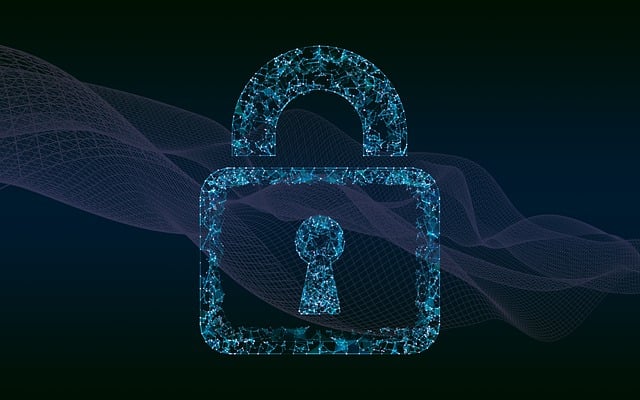In today's digital age, data is a valuable asset vulnerable to various cyber threats. Cyber Insurance for Data Protection offers crucial financial protection and risk management strategies against data breaches, ransomware attacks, phishing scams, and other incidents. This insurance ensures businesses can recover quickly, maintain operations, protect assets, and preserve consumer trust in the face of heightened digital risks. By choosing the right policy based on data sensitivity, industry regulations, risk tolerance, and potential cyber events, organizations can safeguard their digital assets and ensure business continuity with enhanced peace of mind. The structured claims process involves swift notification, detailed breach information, insurer review, liability assessment, and resolution guidance. Robust data security measures, including access controls, software updates, encryption, backups, employee training, and MFA, complement cyber insurance for effective protection against evolving cyber threats.
In today’s digital landscape, data is a valuable asset, making data loss insurance solutions essential for businesses. This article explores the critical aspect of cyber insurance for data protection, delving into the profound impact of data breaches and their potential financial and reputational consequences. We’ll guide you through understanding various data loss scenarios, choosing the right coverage, and navigating the claims process. Additionally, we provide best practices to ensure robust data security.
Understanding Data Loss and Its Impact

In today’s digital era, data is a valuable asset for any organization or individual. However, the constant threat of cyberattacks and data breaches poses significant risks to this precious resource. Data loss can occur due to various reasons, including malware infections, human error, system failures, and deliberate attacks. The impact of such losses can be devastating: from financial losses and reputational damage to legal consequences and lost customer trust.
Cyber Insurance for Data Protection emerges as a crucial solution, offering financial coverage and risk management strategies tailored to mitigate the effects of data breaches. This type of insurance helps organizations recover from data loss incidents by providing funds for incident response, data restoration, legal fees, and credit monitoring services. By having Cyber Insurance in place, businesses can ensure continuity, protect their assets, and maintain consumer confidence in an increasingly digital landscape.
The Role of Cyber Insurance in Data Protection

In today’s digital era, data is a valuable asset for any organization. As such, protecting this data from cyber threats has become paramount. Cyber Insurance for Data Protection plays a crucial role in safeguarding against financial losses incurred due to data breaches or other cyber-related incidents. It provides coverage for costs associated with incident response, legal fees, and even business disruption caused by a successful cyberattack.
By offering comprehensive protection, cyber insurance acts as a shield against the growing landscape of digital risks. This includes threats like ransomware attacks, phishing scams, and malicious software designed to steal sensitive information. Having such insurance ensures that businesses can recover quickly from these incidents, minimizing downtime and potential reputational damage.
Common Data Loss Scenarios and Coverage

In today’s digital era, data loss has become a growing concern for businesses and organizations worldwide. Common scenarios include accidental deletion, hardware failures, cyberattacks such as ransomware, and natural disasters. These incidents can lead to significant financial losses, reputational damage, and operational disruptions. That’s where Data Loss Insurance Solutions come into play; they offer crucial protection against these risks, ensuring businesses can recover swiftly and continue operations uninterrupted.
Cyber Insurance for Data Protection specifically addresses the increasing threat of cybercrime. It covers expenses related to data recovery, business interruption, forensic investigations, and legal fees arising from a data breach or loss event. This type of insurance enables organizations to navigate the complex landscape of cybersecurity risks, providing peace of mind and financial safeguards in case of an unexpected data loss incident.
Choosing the Right Data Loss Insurance Policy

Choosing the right data loss insurance policy is a crucial step in safeguarding your organization’s digital assets and ensuring business continuity. With the ever-evolving landscape of cyber threats, having robust data protection measures in place is essential. Cyber insurance for data protection specifically caters to these needs by providing financial coverage for data breaches, hacking incidents, and other cyber-related risks.
When selecting a policy, consider factors such as the sensitivity of your data, industry regulations, and your organization’s risk tolerance. Assess the type of cyber events you’re most vulnerable to, whether it’s ransomware attacks, data theft, or business interruption caused by a breach. Compare coverage limits, exclusions, and deductibles offered by different insurers to find a policy that aligns with your specific needs and budget.
Key Features and Benefits of Data Loss Insurance Solutions

Data Loss Insurance Solutions are designed to protect businesses from the financial impact of data breaches and cyber attacks, offering a crucial layer of security in today’s digital landscape. These solutions provide coverage for the costs associated with data restoration, legal fees, credit monitoring services, and public relations management following a data loss event. By mitigating these potential expenses, cyber insurance for data protection becomes an invaluable asset for any organization dealing with sensitive information.
Key features include rapid response services to contain and assess damage, as well as forensics experts who specialize in tracing the source of the breach. Additionally, these policies often include business interruption coverage, ensuring operations can continue uninterrupted during recovery efforts. The benefits extend beyond financial protection; they also foster a culture of cybersecurity awareness and preparedness, empowering businesses to respond effectively to potential threats.
Claims Process and What to Expect

When a data loss incident occurs, understanding the claims process is crucial for businesses seeking cyber insurance for data protection. The first step involves notifying your insurance provider as soon as possible, providing detailed information about the breach to facilitate a swift investigation. This may include reporting the incident to relevant authorities, as required by law or policy.
The claims examiner from your cyber insurance company will review the situation, evaluating the extent of the data loss and its impact on your business operations. They may request additional documentation, such as security logs, incident response plans, and forensic reports, to assess liability and determine coverage. Once the assessment is complete, the provider will either approve or deny the claim, communicating their decision along with the next steps in the process, ensuring a clear understanding of what to expect during resolution.
Staying Protected: Best Practices for Data Security

Staying protected in today’s digital age requires robust data security measures. As cyber threats evolve, so must our defenses. One crucial step is implementing strong access controls and regularly updating software to patch known vulnerabilities. Encryption of sensitive data at rest and in transit is another vital practice, ensuring that even if there’s a breach, the information remains unreadable without the decryption key. Regular backups are also essential; having current, secure backups enables efficient recovery in the event of data loss due to cyberattacks or other disasters.
Additionally, fostering a culture of cybersecurity awareness among employees can significantly reduce risks. Training users to recognize phishing attempts and implementing multi-factor authentication (MFA) adds extra layers of defense. Cyber insurance for data protection complements these practices by offering financial coverage for data breaches, enabling organizations to recover faster and more effectively from potential cyber incidents.
